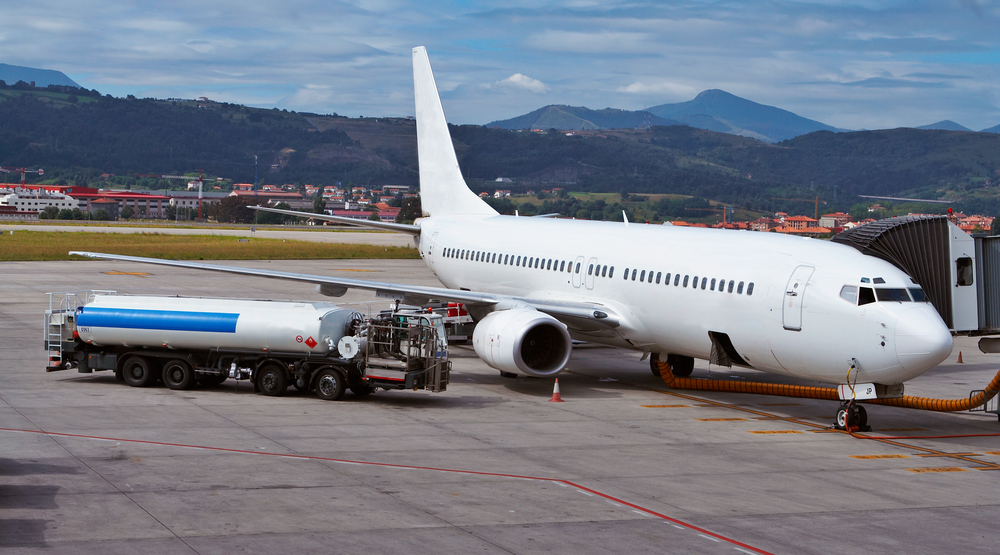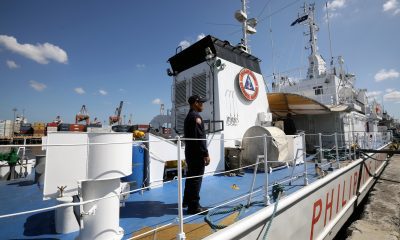Breaking
Should airlines rejoice over high oil prices?

Should airline companies be happy over continuously increasing oil prices? File photo by Rafa Irusta / Shutterstock
NEW YORK — Airline executives frequently complain about fuel costs. But the truth is higher prices actually have been good for business.
In the past six years, airlines have overhauled the way they operate to adjust to this new reality. They’ve shown more discipline by offering fewer seats, which ensures airfares are high enough to cover costs. Unprofitable routes have been eliminated. And every expense has been scrutinized.
These changes, along with high oil prices, have created an insurmountable roadblock to startup airlines that hope to undercut established carriers.
“Traditionally, it was too easy to start an airline and too difficult to kill one off,” says Jamie Baker, an airline analyst with JPMorgan Chase.
No more.
A decade ago, airlines were paying just $1.42 a gallon for fuel, when adjusted for inflation. Last year, they paid an average of $3.03 a gallon, according to the Bureau of Transportation Statistics. Fuel now accounts for more than a third of airlines’ expenses, overtaking salaries, wages and benefits as the single biggest line item. U.S. carriers burned through 16 billion gallons of jet fuel last year at cost of $48.4 billion. That’s up nearly $23 billion from 10 years ago – when the airlines consumed 2 billion more gallons of fuel.
So why is this good?
High oil prices forced the major airlines to do business differently. They grounded older, gas-guzzling jets. Then they charged extra for checking baggage and raised other fees. More passengers were packed into planes and mergers helped push airfares higher. The average cost of a roundtrip domestic ticket – including baggage and reservation change fees – grew to $378.62 from $351.48 in the last five years, when adjusted for inflation.
All of that has them on pace for a fifth consecutive year of profits.
A big reason for the streak: The majors aren’t facing the myriad of fly-by-night start-ups that disrupted their business in the past. Low-cost carriers like PeopleExpress and ValueJet used to be able to enter markets, charge a lot less to fly and push the established carriers out.
Now – since fuel is such a great expense – that doesn’t happen anymore, said Scott Kirby, president of American Airlines, at a recent aviation symposium in Phoenix.
“It’s an equalizer,” Kirby said.
Skybus Airlines launched in May 2007 promising to sell at least 10 seats on each of its flights for $10. By the following April, a spike in fuel prices proved fatal and the airline shut down operations overnight.
Without that competition, legacy carriers have avoided fare wars and kept ticket prices high.
“This represents the longest post-deregulation stretch that nobody has started a new airline in the United States,” Baker says.
Virgin America was the last major new U.S. carrier. But since it started flying in August 2007, the San Francisco-based airline has lost hundreds of millions of dollars. It didn’t post its first annual profit until last year and that was only after it stopped its rapid expansion.
Jeff Knittel, president of transportation and international finance at CIT, which leases planes to airlines, says the high fuel costs has created a financial discipline among carriers that has made them look closely at every expense – in the air and on the ground.
As part of their quest to reduce fuel consumption, airlines have replaced drink carts with new, lighter ones. Planes now taxi with only one engine running. And wingtips have been redesigned to reduce drag.
“It has forced efficiency throughout the entire organization,” Knittel says.
High oil prices have also caused lenders to take a closer look at business models. In the past, they just considered the collateral – the airplane – that they were lending against.
“It makes the merits of the airlines matter more than they have in the past,” says Hunter Keay, an airline analyst with Wolfe Research.
Airlines are only expanding to cities where they know they can make money, limiting competition and keeping everybody’s flights profitable. Instead of fighting to become the largest airline in a city, airlines are now making rational decisions based on profitability.
“The only universal disciplinarian across the entire global airline industry is high oil prices,” Keay says. “It makes even the bad actors make hard choices.”





















